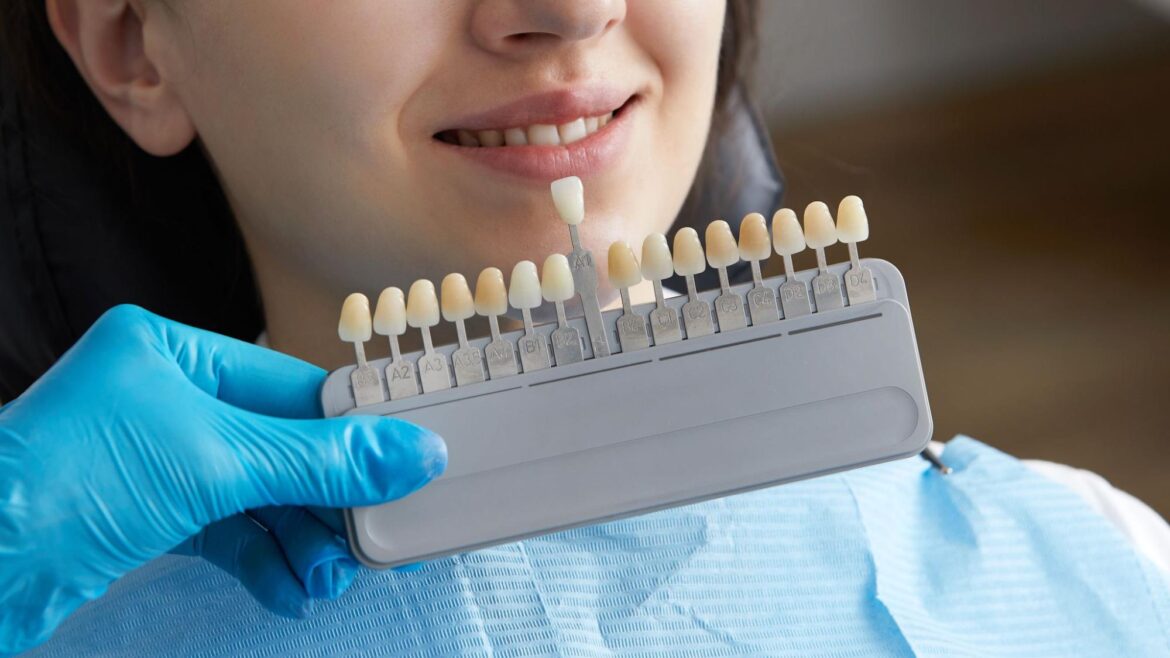Deciding to invest in dental veneers is quite the leap towards securing the smile you’ve always wanted. It’s natural to have questions swirling around about how much this might dent your wallet.
We understand those musings all too well, mulling over the financial implications of achieving that flawless grin ourselves. With an intriguing nugget of information tucked away—namely that porcelain veneers can remain pristine for up to 15 years with diligent care—we delved into extensive research to shed some light on this topic.
Our exploration uncovers everything from the typical costs across the UK to what drives these prices and the assortment of payment methods at your disposal, including NHS support and private dental insurance schemes.
This blog is designed to arm you with a thorough grasp of the financial considerations needed before taking the plunge.
Key Takeaways
-
- Dental veneers cost between £200 and £1,000 per tooth in the UK, depending on whether you choose composite or porcelain.
- Factors affecting the price include the type of veneer, number of teeth getting veneers, procedure complexity, location of the dental clinic, the dentist’s expertise, and any additional treatments needed.
- The NHS usually doesn’t cover cosmetic procedures like dental veneers; however, private dental insurance might help cover some costs. Explore finance options such as payment plans and interest-free credit offered by many clinics to make payments manageable.
- The material choice – composite or porcelain – not only influences cost but also durability and appearance. Porcelain lasts longer but is pricier.
- Check with your dentist about all available payment methods, including dental insurance coverage, before deciding on getting veneers to ensure they fit within your budget.
The cost of dental veneers

Dental veneers can range in cost, and it’s essential to understand the factors that influence pricing. From the materials used to the complexity of the procedure, various elements affect how much dental veneers will cost.
Average cost range in the UK
In our discussion today, we’re focusing on the cost implications of opting for dental veneers in the UK. The financial commitment varies widely and is influenced by several factors, including the type of veneers, the dentist’s expertise, and the location of the dental practice. To give you a clearer picture, we’ve put together a table outlining the average cost range you might expect.
Type of Veneer Average Cost Range in the UK (£)
Composite Veneers 200 – 600 per tooth
Porcelain Veneers 500 – 1,000 per tooth
Factors that affect the cost of dental veneers include:
- Veneer Type: The material and type of veneer, such as composite, porcelain, or ultrathin, significantly affect the overall cost.
- Number of Veneers: The number of teeth requiring veneers directly impacts the total cost, as getting a full set will be more expensive than just a few.
- Complexity of Procedure: More complex cases may require additional preparatory work, which can influence the final cost.
- Location: The cost may vary depending on the location and reputation of the dental clinic or practitioner.
- Practitioner’s Expertise: Experienced and highly skilled practitioners may charge more for their services.
- Additional Procedures: Some cases may require complementary procedures like dental bonding, crowns, or teeth whitening, which can add to the overall expense.
Choosing the right payment option
Explore dental finance options, NHS coverage, and private dental insurance to make an informed decision. Consider your financial needs and weigh the pros and cons of each payment option before making a choice.
Dental finance options
When considering dental finance options, it’s important to explore various avenues that may help manage the cost of veneers. You can consider the following options:
- Dental Payment Plans: Many dental practices offer payment plans to spread the cost of veneers over some time, making it more manageable for patients.
- Interest-Free Credit: Some dental clinics provide interest-free credit options, allowing patients to pay for their veneers in instalments without incurring additional charges.
- Private Dental Insurance: If you have private dental insurance, review your policy to see if it covers cosmetic treatments like veneers. It could significantly reduce your out-of-pocket expenses.
- NHS Coverage: While NHS doesn’t usually cover cosmetic treatments, there are certain circumstances where veneers might be considered for clinical reasons.
- Healthcare Financing Companies: Explore options provided by healthcare financing companies that specialise in helping individuals manage medical and dental expenses through customised loan products or credit cards with specific benefits for healthcare services.
- Flexible Spending Accounts (FSA) or Health Savings Accounts (HSA): If eligible, using these accounts can provide tax advantages when paying for dental care, including veneers.
- Negotiating with Your Dentist: In some cases, dentists may be open to discussing flexible payment arrangements based on individual circumstances.
Remember that each option has its pros and cons, so carefully assess which one aligns best with your financial situation and requirements.

NHS coverage
NHS coverage for dental veneers is limited to cases where there’s a significant clinical need. This means that cosmetic reasons are generally not covered, and only the most essential treatments for maintaining oral health receive NHS funding.
Therefore, it’s important to consult with your dentist to understand if your specific case qualifies for NHS coverage. Any treatment that falls outside of these criteria will likely require private funding or an alternative payment option.
Private dental insurance may provide coverage for some or all of the costs associated with dental veneers, depending on the type of plan you have. It’s advisable to carefully review your insurance policy to determine what is covered and what out-of-pocket expenses you may incur when opting for this cosmetic procedure.
Private dental insurance
Private dental insurance can help with the cost of dental veneers. It can cover a portion or all of the expenses, depending on the policy and the type of veneers needed. When considering private dental insurance, it’s important to review the coverage details for cosmetic procedures such as veneers.
The cost estimation for veneers can vary based on factors like material and procedure complexity.
It is advisable to look into different private dental insurance plans that may offer coverage for veneer procedures. Dental patients should carefully assess their options and choose a plan that best suits their needs and budget while factoring in potential upcoming cosmetic dentistry prices.
Conclusion
Wondering about the cost of dental veneers? The average price in the UK can range from £500 to £1500 per tooth. Various factors, such as the material, type, and complexity of the procedure, influence the overall cost.
When considering veneers, explore payment options like dental finance plans or private coverage insurance. Understanding these costs helps in making informed decisions when enhancing your smile with dental veneers.


